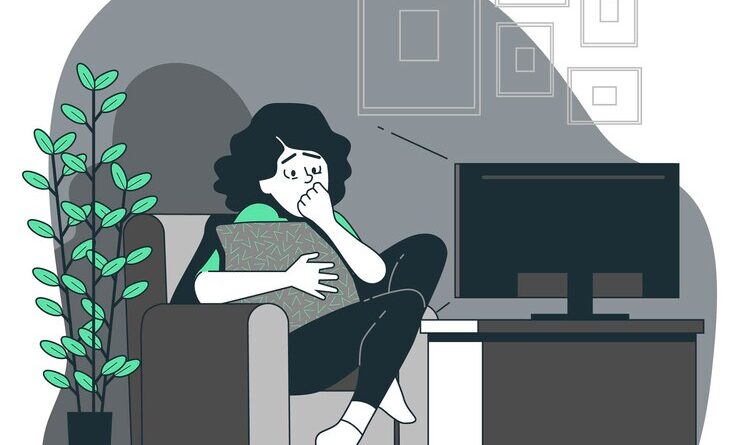Navigating Life with Extreme Fears
Overcoming the Paralyzing Grip of Anxiety
Fear is a natural and often necessary response to perceived threats, serving as a protective mechanism that ensures survival. However, when fear becomes extreme and pervasive, it can disrupt daily life, relationships, and overall well-being. Extreme fears, also known as phobias or severe anxiety, can manifest in various forms, from fear of social interactions to fear of specific objects or situations. Understanding how to navigate life with these fears is crucial for regaining control and achieving emotional balance.
The Nature of Extreme Fears
Extreme fears are not merely intense emotions but deeply ingrained psychological responses that can stem from past experiences, genetic predispositions, or environmental factors. These fears often lead to avoidance behaviors, where individuals go to great lengths to prevent encounters with the source of their anxiety. Over time, this avoidance can limit opportunities for growth, connection, and fulfillment.
Common examples of extreme fears include:
- Social Anxiety Disorder: Fear of being judged or humiliated in social settings.
- Agoraphobia: Fear of finding oneself in a situation from which escape may be difficult.
- Specific Phobias: Intense fear of particular objects or situations, such as heights, animals, or confined spaces.
- Panic Disorder: Fear of having recurring panic attacks, often leading to a fear of fear itself.
Strategies to Manage Extreme Fears
Managing extreme fears requires a multi-faceted approach that combines self-help techniques, professional guidance, and a supportive environment. Here are some strategies to help navigate life with extreme fears:
1. Recognize and Accept Your Fear
The first step in dealing with fear is admitting that it exists. Acceptance does not mean resignation; instead, it involves understanding your fear’s triggers and effects without judgment.
2. Challenge Negative Thoughts
Extreme fears often thrive on distorted thought patterns, such as catastrophic thinking or overgeneralization.Techniques from Cognitive Behavioural Therapy (CBT) can assist in recognising and disputing these ideas, substituting them with more impartial viewpoints.
3. Gradual Exposure
An empirically supported technique for lowering fear is exposure therapy.By gradually and systematically confronting feared situations or objects, individuals can desensitize themselves and reduce anxiety over time. Start small and build up your tolerance to more challenging scenarios.
4. Practice Relaxation Techniques
Relaxation techniques, such as deep breathing, progressive muscle relaxation, and mindfulness meditation, can help calm the body’s physiological response to fear. Resilience and emotional control can be improved with regular practice.
5. Seek Professional Help
Overcoming extreme fears often requires the expertise of a trained top psychologist or counselor. They can provide personalized strategies and therapeutic interventions tailored to individual needs.
6. Build a Support System
Talk about your experiences with family, close friends, or support groups. Knowing that you are not alone can foster a sense of belonging and encouragement.
7. Focus on Self-Care
Maintaining physical and emotional well-being through proper nutrition, exercise, sleep, and hobbies can enhance overall resilience to stress and fear.
ThePsychowellness Psychologists to Guide You on This Journey
Finding the right mental health professional is crucial for effectively managing extreme fears. Below is a list of the best psychologists who specialize in treating anxiety, phobias, and other related issues:
Dr. R. K. Suri
Dr. R. K. Suri is a clinical psychologist with extensive experience in treating anxiety disorders, including extreme fears and phobias. He employs evidence-based techniques such as CBT and exposure therapy to help clients regain control over their lives. Dr. Suri is known for his compassionate and solution-focused approach.
Ms. Sakshi Dhankhar
Ms. Sakshi Dhankhar is a counseling psychologist with expertise in treating anxiety, depression, and low self-esteem. She uses a range of therapeutic modalities, including CBT, REBT, and DBT, to support individuals in overcoming extreme fears and achieving personal growth.
Ms. Tanu Sangwan
Ms. Tanu Sangwan is a mental health professional dedicated to helping clients manage anxiety and phobias.Her client-centered approach guarantees that every person receives interventions that are specifically designed to meet their needs and objectives.
Mr. Utkarsh Yadav
Mr. Utkarsh Yadav is a skilled psychologist specializing in helping individuals navigate stress, anxiety, and phobias. His empathetic and personalized counseling style empowers clients to face their fears and develop practical coping mechanisms.
Ms. Drishti
Ms.Drishti specializes in treating anxiety and stress-related issues. Her holistic approach integrates mindfulness and cognitive-behavioral strategies to help clients build resilience and navigate life with confidence.
Ms. Srishti
Ms. Srishti is a psychologist with a passion for addressing anxiety disorders, including specific phobias and social anxiety. Her evidence-based therapeutic techniques and warm demeanor create a safe space for clients to explore and overcome their fears.
Ms. Sangeeta Lpal
Ms. Sangeeta Lpal is a psychologist known for her expertise in managing extreme fears and anxiety disorders. She uses a compassionate and collaborative approach to help clients identify triggers and develop effective coping strategies.
Ms. Mansi
Ms. Mansi is a dedicated mental health professional with a focus on treating anxiety, phobias, and panic disorders. Her therapeutic interventions are designed to empower clients to face challenges and regain a sense of control over their lives.
Conclusion
Navigating life with extreme fears can be daunting, but it is not insurmountable. People can overcome the crippling hold of fear and lead satisfying lives with the correct techniques, expert assistance, and perseverance. Remember, seeking help is a sign of strength, and taking that first step can open the door to a brighter, fear-free future.
References
- American Psychological Association. (n.d.). Anxiety disorders. Retrieved from https://www.apa.org/topics/anxiety
- National Institute of Mental Health. (n.d.). Phobias. Retrieved from https://www.nimh.nih.gov/health/topics/anxiety-disorders
- Hofmann, S. G., & Smits, J. A. J. (2008). Cognitive-behavioral therapy for adult anxiety disorders: A meta-analysis of randomized placebo-controlled trials. Journal of Clinical Psychiatry, 69(4), 621-632.
- Mayo Clinic. (n.d.). Anxiety disorders: Diagnosis and treatment. Retrieved from https://www.mayoclinic.org/diseases-conditions/anxiety/symptoms-causes/syc-20350961




